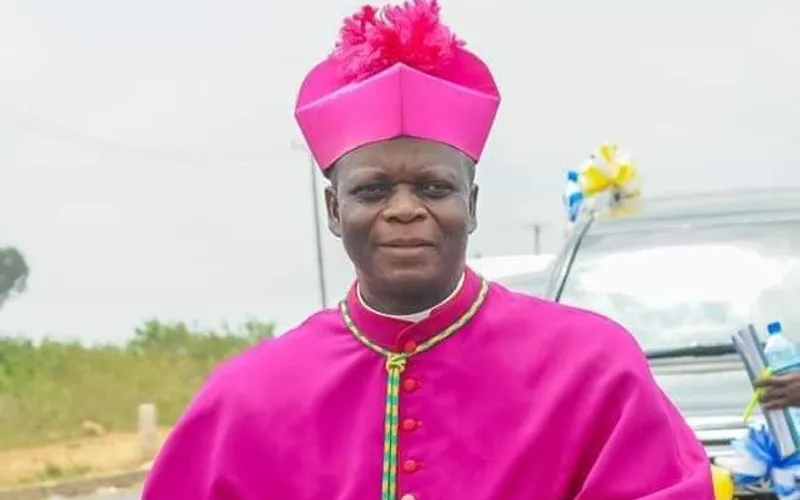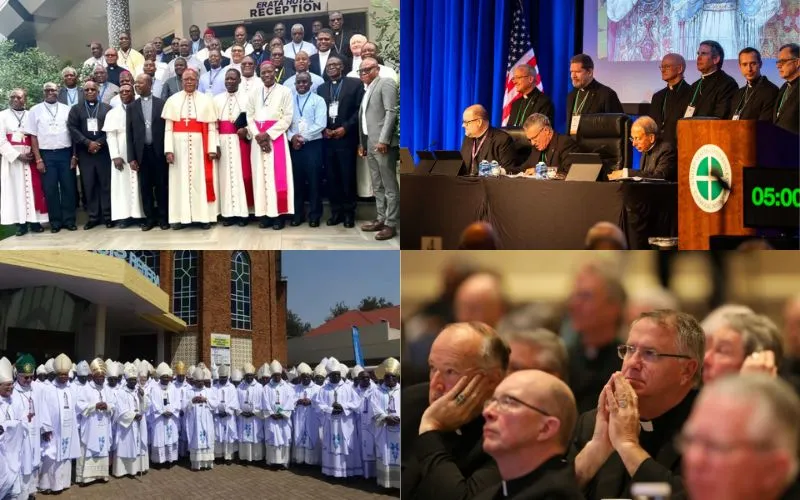He said that the Diocese had, for a while, engaged with the Jesuits on the possibility of collaborating in matters of evangelization, and added, “We settled on education, but more specifically a university education. The Diocese offered to make a contribution of 75 acres of land to bring this to fruition.”
“Today, with the groundbreaking, a very monumental event has happened in the Diocese,” the Kenyan Catholic Church leader said during the March 16 interview posted on YouTube a couple of days later.
He added, “Since the early 90’s, Molo has been one of the places that has been hit hard by violence. We talk about clashes, we talk about people displaced in Molo, we talk about people who have died in Molo. Molo is the place that some would call the epicenter of some of the problems we have experienced in this country. People have lived under that shadow for a very long time.”
Archbishop Muhatia said that the Diocese of Nakuru had been thinking of what to do “to open a new chapter in the lives of the people of Molo.”
He said that starting a university in Molo is a good opportunity for the Church to open up the region for greater development.
(Story continues below)
“I believe that in the coming years, the university we are building is going to transform Molo in a big way, socially, spiritually, pastorally, economically, even politically. And we pray that the university helps to contribute to the establishment of lasting peace in Molo as a place, Nakuru as a county and contributes to the entire nation in that entire area,” he said.
According to the Kenyan Catholic Prelate, institutions of higher learning have been known to transform places where they are established.
In his message aired by Capuchin TV, Archbishop Muhatia called upon Kenyans to embrace peace and respect for each other as the country heads to the election day set for August 9.
He noted that compared to past years, Nakuru had in recent times enjoyed peace and expressed hope that the situation would remain that way.
“I must, however, emphasize that there are parts of Nakuru that are still experiencing trouble, especially parts of Baringo. We still have sporadic violence in that part of Nakuru and we need to find a lasting solution to these problems as a country,” Archbishop Muhatia said days ahead of his installation as the Local Ordinary of Kisumu.
He added, “Personally, after my 12 years in this Diocese, I have come to believe that sporadic operations in the part of Baringo are not going to give us a lasting solution to the problems in that part of the country.”
He underlined the need to open up Baringo for social, political and economic development by boosting its infrastructure.
“As a country, we need to open up that country in terms of infrastructure. The government needs to work hard to open up this place by building roads,” the Catholic Church leader who has served as the Bishop of Nakuru since his Episcopal Ordination in February 2010 said.
He added, “It was only about last year that we had the first tarmac road going to East Pokot ever since the world began.”
He said, in reference to the embattled region of Baringo, “These are places where police stations don’t exist at all. These are places where schools are very rare. The schools are few and very far between, sometimes more than 20 kilometers apart. This way, access to education is very limited and the levels of illiteracy are very high, with some having as high as 90 percent illiteracy levels.”
“When people live in situations like these, sporadic operations cannot be lasting solutions. I would invite the government to invest more into lasting solutions such as education, security, and health to build a lasting peaceful community in that part of Baringo that is so troubled up to now,” Archbishop Muhatia said March 16.
Agnes Aineah is a Kenyan journalist with a background in digital and newspaper reporting. She holds a Master of Arts in Digital Journalism from the Aga Khan University, Graduate School of Media and Communications and a Bachelor's Degree in Linguistics, Media and Communications from Kenya's Moi University. Agnes currently serves as a journalist for ACI Africa.








